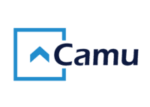
The Future of Education Is Looking Smart, Savvy, and Student Driven
EdTech is the connecting glue, the binding factor, that holds various aspects of the educational system in place.
And while this field of technology development has been around for almost two decades, it has only emerged as a mainstream practice since the year 2020.
The pandemic accelerated the growth of EdTech platforms – applications, software, tools – as institutions had no choice but to rely on these systems for the smooth delivery of education.
What started as a bold move to ensure the survival of the educational system, has now transformed into a necessary next step for schools, universities and colleges across the world.
The ‘new normal’ as they call it.
EdTech is shaping the way knowledge is being accessed, shared and applied across various contexts – academic and corporate.
But what are the implications of this discipline for the future?
In this blog, we dig deeper to uncover how EdTech is paving a new and improved path for learning.
Democratising the education system
Campus management solutions, e-learning platforms and web-based services ensure that learning is accessible to anyone, at any time and any place. Little matters what the demographic or geographic background of a student is, so long as he or she has a stable internet connection and a smart device to work with.
Connecting students and teachers from across the world
With a full-fledged digital campus, learning is no longer confined to a physical location. This means that students can avail of the best-in-class teachers from across the world. Institutes take on the role of virtual intermediaries, providing a meeting ground for the exchange of knowledge and ideas.
Being inclusive of learning disabilities
Learning apps can help support students who may be struggling with disabilities such as dyslexia and dysgraphia. Additionally, assistive technologies can help make education more accessible to those who suffer from blindness and deafness. The aim is to adapt the instruction to match the student’s special needs.
Offering specialised courses and curriculums
EdTech tools enable instructors to create personalised study plans in accordance with student requirements. Based on the style and pace of the learner, teachers can develop appropriate lecture activities, assessments, extra-curricular, and so forth. Mapping out different learning paths for different students ensures realisation of outcomes.
Fostering creativity and collaboration
Multimedia applications provide ample opportunities for learners to be innovative and think out of the box. Additionally, communication technology enables students, teachers, parents, administrators and other relevant stakeholders to stay connected with convenience and ease.
Using Virtual Classrooms to stream live lectures
The virtual classroom mimics a real one in that students can attend a lecture with their peers. The only difference is that it is conducted screen-to-screen as opposed to face-to-face. By using web-based interaction and live streaming, teachers can tap into mixed media content to deliver more creativity and better learner engagement.
Tracking student progress through data analytics
A comprehensive college and school ERP systems allows student data to be collected and collated. This helps institutes track and monitor student progress and provide instant, personalised feedback to each learner.
Automating administrative tasks with Artificial Intelligence (AI)
AI-powered tools are used to automate time-consuming tasks such as marking attendance, creating question papers, grading examinations, computing marks, generating reports, locating a student’s profile etc. This leads to time and cost savings.
Making abstract concepts concrete with Virtual Reality (VR)
Virtual reality simulations help learners to grasp scientific and engineering-related theories that are complex. It allows students to interact with the subject matter and apply their learnings.
Providing students with autonomy and choice
EdTech empowers students to take complete ownership of their academic journeys, from enrolment to graduation. It focuses on helping students achieve their outcomes by supporting their choices, subject or career-related.
As an academician, you will have deployed some aspects of EdTech into your curriculum.
This could pertain to software that helps you mark attendance, organize efficient workflow, communicate with students and parents etc.
If you’d like to explore a platform that is fully integrated, and supports all of the above functions, get in touch with us.
We’d like to help you unlock your institute’s EdTech capabilities.







